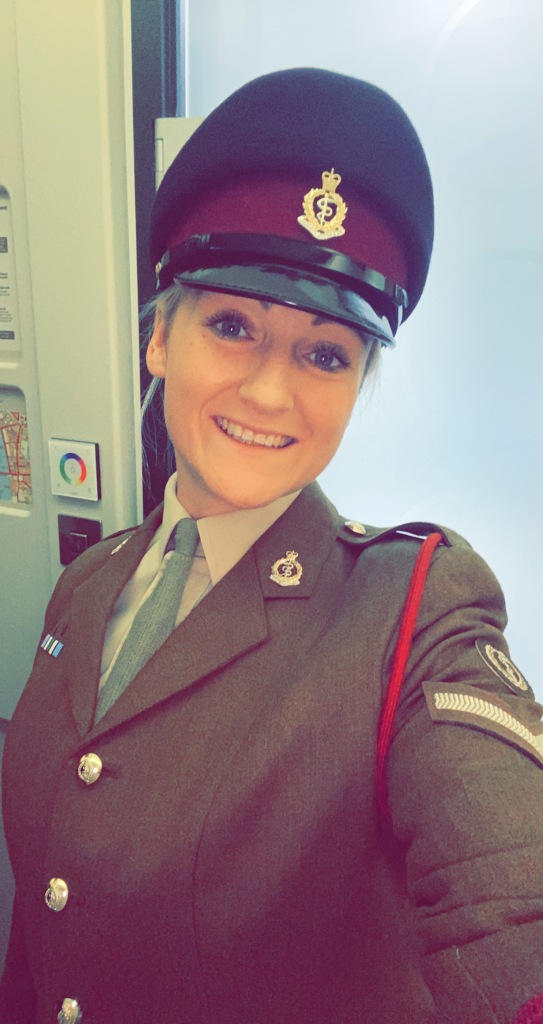When you think of the UK Armed Forces, many of our minds will go to an infantry soldier fighting stoically on the battlefield, or perhaps bearskins guarding the King at the palace. Not many people think of breastfeeding mother. But we do have them.
The Defence Breastfeeding Network launched in June 2020, to support breastfeeding soldiers during their maternity and return to work phase. Initially, we started with a Facebook group for some community support. We then created a partnership with Families and Babies Lancashire, who train members of the DBN to become level 2 breastfeeding peer supporters. As a network, we have currently trained over 60 peer supporters who give back to our members but also in their own communities. A project the DBN is currently working on is the establishment of breastfeeding/ wellness rooms within our infrastructure. These rooms all have a lockable door, comfortable seating, access to fridge space, access to clean running water and electricity. Many of the rooms are made comfortable with extra facilities such as tea and coffee stations, TV’s/radios, microwaves and more, with credit to the individuals within units that set these rooms up for all to benefit from. These rooms are more than just set up for those that need it now, they’re set up for when they are needed in the future. As an organisation, the Armed Forces are setting an example that I would encourage every employer to follow.
In 2021, the Defence Breastfeeding Policy was launched, providing clear and concise information for line managers on how to effectively manage and support breastfeeding mothers in the workplace, from risk assessments to medical gradings and through to deploying into a field environment which can mean living outside for extended periods of time. This does not mean we are sending breastfeeding mothers away from their children for months on end with little notice but takes into account the fact that we are soldiers, aviators and sailors. Gone are the days where women were dismissed from the military for being pregnant, and now as an organisation we are aiming to be proactive with breastfeeding support rather than reactive. Service life isn’t always easy on the service person or their immediate family, and as a network, the DBN is there to be as much of a village as possible. Education is really important, and the DBN attends unit health events and gives briefings across the UK to raise awareness of policy and the networks existence, in order to create more allies within the Armed Forces.
I have personally been on a field exercise (in the UK) with a manual breastpump in my bergen. It was handled wonderfully, I was able to take a small fridge to store my milk and was able to be transport it back to a freezer too. I was given the time, space and respect to express milk comfortably and was treated with dignity. I went on to feed my son for 2.5 years.
So how do we make breastfeeding work? We need support. We need employers that are proactive and view mothers as an asset and not a hindrance. We need support from everyone else; our families, friends, and strangers in the street. And I’m proud to say that the Armed Forces is a great champion.
LCpl Natasha Day MBE joined the British Army in 2014 as a Combat Medical Technician, deploying to South Sudan and Kenya before studying to become a Paramedic in 2021. After the birth of her son Charlie, she established the Defence Breastfeeding Network (DBN) in 2020 to support members of the Armed Forces and their families in their breastfeeding journey. The DBN supports over 1300 families and has collectively opened 83 breastfeeding and wellness rooms across Defence infrastructure. Natasha is currently posted to the NHS as a Paramedic.

